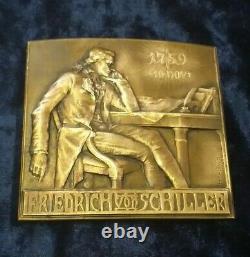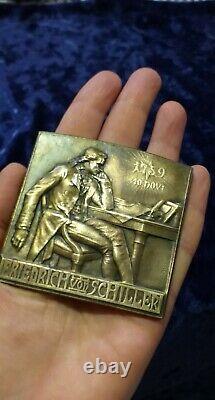
- Poems Poetry Art
- Binding
- Format
- Board Book (2)
- Books (3)
- Box Set (2)
- Broadside (2)
- Chapbook / Pamphlet (9)
- Cover Rigid (3)
- Hard Cover (2)
- Hardback (10)
- Hardcover (502)
- Leather (6)
- Library Binding (2)
- Mixed Lot (6)
- Paperback (101)
- Paperback / Softback (4)
- Perfect (8)
- Physical (6)
- Record (2)
- Softcover (13)
- Trade Paperback (123)
- Unknown (8)
- ... (2641)
- Illustrator
- Clarence F Underwood (6)
- Ed Cain, (6)
- Edward Gorey (3)
- Eyvind Earle (3)
- Gris Grimly (3)
- Gustave Doré (11)
- Jack Hirschman (9)
- Kenneth Patchen (5)
- Leonard Baskin (8)
- Patrick Carroll (4)
- Robert Anning Bell (5)
- Rosaleen Norton (4)
- Shel Silverstein (4)
- Thomas W. Nason (3)
- Unknown (6)
- Various (13)
- Various Artists (3)
- William Blake (6)
- Willy Pogany (4)
- Yes (22)
- ... (3327)
- Isbn
- 0791409910 (4)
- Doesnotapply (10)
- 2911127552 (4)
- 9780300206074 (4)
- 9780500510148 (4)
- 9780520222434 (4)
- 9780520358263 (3)
- 9780578646787 (3)
- 9780692125199 (3)
- 9780742511279 (6)
- 9780801437588 (3)
- 9780820330877 (4)
- 9780962264603 (4)
- 9780982410059 (4)
- 9780996067614 (11)
- 9781419721977 (10)
- 9781457607301 (4)
- 9781852424329 (4)
- 9781933947273 (4)
- 9782364370319 (10)
- ... (3352)
- Item Length
- Language
- Arabic (3)
- Czech & English (11)
- Dutch (5)
- Eng, Gec (3)
- English (1342)
- English, Japanese (3)
- English, Persian (3)
- English, Russian (9)
- French (43)
- Germ, German (4)
- German (45)
- German, Germ (13)
- Hebrew (3)
- Italian (11)
- Japanese (18)
- Latin (11)
- Persian (7)
- Portuguese (3)
- Russian (19)
- Spanish (13)
- ... (1886)
1909 German Poetry FRIEDRICH VON SCHILLER Bronze Art Medal Signed H. Kautsch







150TH BIRTHDAY OF FRIEDRICH von SCHILLER 1909 BY - H. In very good condititions according to the age. Pictures are part of description. Please see all detailed pictures. Size, overall dimensions: H 7 cm x W 7 cm / H 2" 3/4 x W 2" 3/4.
Johann Christoph Friedrich von Schiller. [johan kstf fidç fn l]. 10 November 1759 9 May 1805 was a German. Poet, philosopher, physician, historian, and playwright. During the last seventeen years of his life (17881805), Schiller developed a productive, if complicated, friendship with the already famous and influential Johann Wolfgang von Goethe.
They frequently discussed issues concerning aesthetics. And Schiller encouraged Goethe to finish works he left as sketches. This relationship and these discussions led to a period now referred to as Weimar Classicism. They also worked together on Xenien. A collection of short satirical poems in which both Schiller and Goethe challenge opponents of their philosophical vision.
The coffin containing what was purportedly Schiller's skeleton was brought in 1827 into the Weimarer Fürstengruft. (Weimar's Ducal Vault), the burial place of the house of Saxe-Weimar-Eisenach. In the Historical Cemetery of Weimar. And later also Goethe's resting place.
On 3 May 2008, scientists announced that DNA tests have shown that the skull of this skeleton. Is not Schiller's, and his tomb is now vacant. The physical resemblance between this skull and the extant death mask. As well as to portraits of Schiller, had led many experts to believe that the skull was Schiller's.
Germany's oldest Schiller memorial (1839) on Schillerplatz, Stuttgart. The city of Stuttgart erected in 1839 a statue in his memory on a square renamed Schillerplatz. Was unveiled on Berlin's Gendarmenmarkt. There is a Friedrich Schiller statue on Belle Isle in Detroit Michigan. His image appeared on the German Democratic Republic.
10 Mark banknotes of the 1964 emission. In September 2008, Schiller was voted by the audience of the TV channel Arte. As the second most important playwright in Europe after William Shakespeare. Some Freemasons speculate that Schiller was a Freemason. But this has not been proven.In 1787, in his tenth letter about Don Carlos. Nor Mason, but if the fraternization has a moral purpose in common with one another, and if this purpose for human society is the most important.. In a letter from 1829, two Freemasons from Rudolstadt. Complain about the dissolving of their Lodge Günther zum stehenden Löwen that was honoured by the initiation of Schiller.
According to Schiller's great-grandson Alexander von Gleichen-Rußwurm, Schiller was brought to the Lodge by Wilhelm Heinrich Karl von Gleichen-Rußwurm. No membership document has been found.
Schiller wrote many philosophical papers on ethics and aesthetics. He synthesized the thought of Immanuel Kant.
With the thought of the German Idealist. He elaborated Christoph Martin Wieland. S concept of die schöne Seele (the beautiful soul), a human being whose emotions have been educated by reason, so that Pflicht und Neigung (duty and inclination) are no longer in conflict with one another; thus beauty, for Schiller, is not merely an aesthetic experience, but a moral one as well: the Good is the Beautiful. The link between morality and aesthetics also occurs in Schiller's controversial poem, Die Götter Griechenlandes. " The "gods in Schiller's poem are thought by modern scholars to represent moral and aesthetic values, which Schiller tied to Paganism.And an idea of enchanted nature. In this respect, Schiller's aesthetic doctrine shows the influence of Christian Theosophy.
There is general consensus among scholars that it makes sense to think of Schiller as a liberal. And he is frequently cited as a cosmopolitan. Schiller's philosophical work was particularly concerned with the question of human freedom, a preoccupation which also guided his historical researches, such as the Thirty Years' War.
And then found its way as well into his dramas the Wallenstein trilogy. Concerns the Thirty Years' War, while Don Carlos addresses the revolt of the Netherlands against Spain.
Schiller wrote two important essays on the question of the sublime (das Erhabene), entitled " Vom Erhabenen " and " Über das Erhabene "; these essays address one aspect of human freedomthe ability to defy one's animal instincts, such as the drive for self-preservation, when, for example, someone willingly sacrifices themselves for conceptual ideals. Schiller is considered by most Germans to be Germany's most important classical playwright. Lamport and Eric Auerbach have noted his innovative use of dramatic structure and his creation of new forms, such as the melodrama and the bourgeois tragedy.
What follows is a brief, chronological description of the plays. (Die Räuber): The language of The Robbers is highly emotional, and the depiction of physical violence in the play marks it as a quintessential work of Germany's Romantic. The Robbers is considered by critics like Peter Brooks. To be the first European melodrama.The play strongly criticises the hypocrisies of class and religion, and the economic inequities of German society; it also conducts a complicated inquiry into the nature of evil. Schiller was inspired by the play Julius of Tarent. (Die Verschwörung des Fiesco zu Genua). (Kabale und Liebe): The aristocratic Ferdinand von Walter wishes to marry Luise Miller, the bourgeois daughter of the city's music instructor.
Court politics involving the duke's beautiful but conniving mistress Lady Milford and Ferdinand's ruthless father create a disastrous situation reminiscent of Shakespeare's Romeo and Juliet. Schiller develops his criticisms of absolutism and bourgeois hypocrisy in this bourgeois tragedy.
Act 2, scene 2 is an anti-British parody. That depicts a firing-squad massacre. Young Germans who refused to join the Hessians. And British to quash the American Revolutionary War.
This play marks Schiller's entrée into historical drama. Very loosely based on the events surrounding the real Don Carlos. Of Spain, Schiller's Don Carlos is another republican figurehe attempts to free Flanders from the despotic grip of his father, King Phillip. The Marquis Posa's famous speech to the king proclaims Schiller's belief in personal freedom and democracy.Consisting of Wallenstein's Camp , The Piccolomini , and Wallenstein's Death , these plays follow the fortunes of the treacherous commander Albrecht von Wallenstein. During the Thirty Years' War.
(Maria Stuart): This history of the Scottish queen, who was Elizabeth I's rival, portrays Mary Stuart as a tragic heroine, misunderstood and used by ruthless politicians, including and especially, Elizabeth. (Die Jungfrau von Orleans): about Joan of Arc.
The item "1909 German Poetry FRIEDRICH VON SCHILLER Bronze Art Medal Signed H. Kautsch" is in sale since Thursday, October 31, 2019. This item is in the category "Coins & Paper Money\Exonumia\Medals".
auction" and is located in Petach Tikva. This item can be shipped worldwide.

